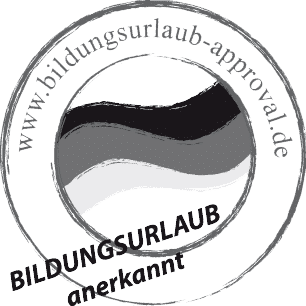Are you excited about your development as a teacher this year? I hope so, but sometimes we can become overwhelmed as we want to change or learn something so much but it seems like such a massive undertaking. This year, why not break it down into bite-size chunks to get you where you want to go.
Why do we make New Year resolutions?
This could be down to a number of reasons, but the setting of resolutions and goals at the start of the year seems to be quite an international concept. In fact, the first record of people setting New Year resolutions were the Ancient Babylonians in 2000BC (that's 4000 years ago!) So why do we still do this?
Have a look at these common reasons - do any of them resonate with you?
Have a look at these common reasons - do any of them resonate with you?
- Getting a fresh start
- Accountability
- Desire for change
- Social inflence and pressure
- Cultural tradition and ritual
Write your awesome label here.

So these are all compelling reasons, but do they 'work'?
People often don't stick to their resolutions and they often don't stick to their professional development goals for the year either.
There are a lot of reasons for this, but one is that we don't 'anchor' it in reality. By this I mean, we don't really visualise what success will be. We don't really see ourselves there, and thus, we often don't pin down the steps we should be taking along the way. I know this is true of the majority of goals I've set myself, but after a year of working in a much more project-based role, I now am a firm believer in goals, milestones and above all, alterations and flexibility to allow for all the surprises that life brings.
People often don't stick to their resolutions and they often don't stick to their professional development goals for the year either.
There are a lot of reasons for this, but one is that we don't 'anchor' it in reality. By this I mean, we don't really visualise what success will be. We don't really see ourselves there, and thus, we often don't pin down the steps we should be taking along the way. I know this is true of the majority of goals I've set myself, but after a year of working in a much more project-based role, I now am a firm believer in goals, milestones and above all, alterations and flexibility to allow for all the surprises that life brings.
So here are some of the steps we can go through to try and 'anchor' our development goals for the year. This is based on the idea of 'backwards design'.
1. Vision for 2024:
There's quite a lot to do here, I know, so there's a link to a worksheet with tables on it you can use. Also, you could adapt this to help your learners set their language goals for the next year.
Happy new year to you all and I wish you all the very best for 2024.
1. Vision for 2024:
Imagine who you want to be as an English language teacher at the end of 2024. Envision your ideal professional self. What skills will you have mastered? What kind of impact will you have on your students and peers?
2. Reflecting on Current Skills:
Take a moment to reflect on your current skills, strengths, and areas for improvement. What aspects of your teaching practice do you want to enhance or develop further?
3. Prioritizing Your Goals:
List the top two to five goals you want to achieve by the end of 2024. Consider aspects such as teaching methodologies, technology integration, language proficiency, or any specific area you wish to develop in.
4. Year-End Goals Breakdown:
Break down each of your goals into smaller, manageable tasks. Consider what skills, knowledge, qualifications, or experiences you need to acquire to reach each goal.
5. Prioritization and Timeline:
Prioritize your goals and create a timeline for achieving each one. Be realistic about the time and effort each goal requires. Consider breaking down your timeline into quarterly or monthly milestones.
6. Professional Development Opportunities:
6. Professional Development Opportunities:
Explore various avenues for enhancing your skills and knowledge. Consider online courses on the Teacher Portal, webinars, workshops, collaborative research with peers, and any other relevant opportunities. List specific events or courses you plan to do and link these to your goals.
7. Collaboration and Peer Support:
Reflect on the importance of collaboration in professional growth. Identify peers or mentorship opportunities that can support your journey. Consider how you can contribute to a collaborative learning community either online or in-person.
8. Reflection and Adaptation:
Regularly revisit and reflect on your goals, progress, and experiences. Be open to adapting your plan based on evolving circumstances and insights gained along the way.
There's quite a lot to do here, I know, so there's a link to a worksheet with tables on it you can use. Also, you could adapt this to help your learners set their language goals for the next year.
Happy new year to you all and I wish you all the very best for 2024.







